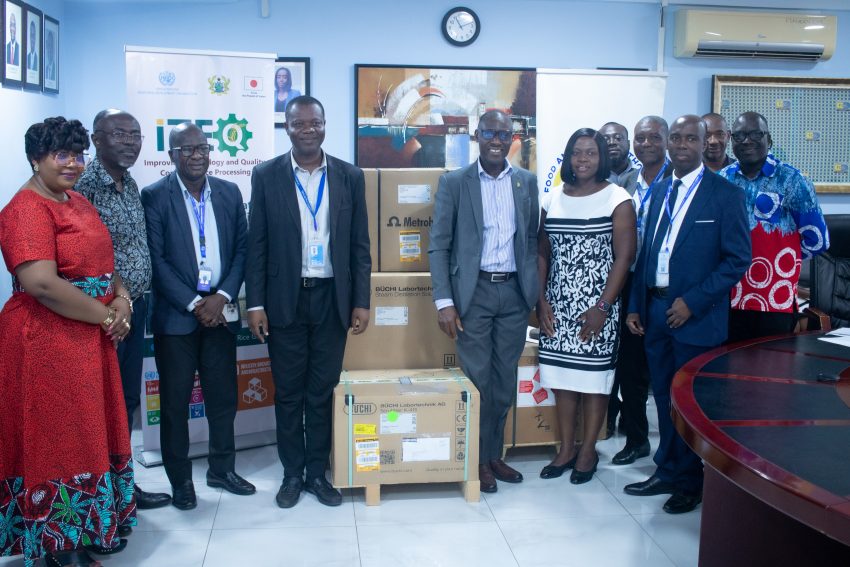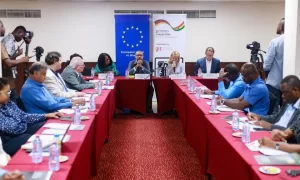By Raymond Awiagah
UNIDO Donates to FDA
The United Nations Industrial Development Organization (UNIDO) has presented advanced laboratory equipment to the Food and Drugs Authority (FDA) in Accra.
Rationale and Equipment Donated to the FDA
The gesture is to enhance the FDA’s analytical and quality control capabilities. The equipment presented includes a Proximate Analyzer and accessories as well as a Kjeldahl (Kedal) Analyzer and accessories, will boost the FDA’s capacity to determine the nutritional composition and protein content of rice and related food products, a key parameter in meeting both national and international food standards.
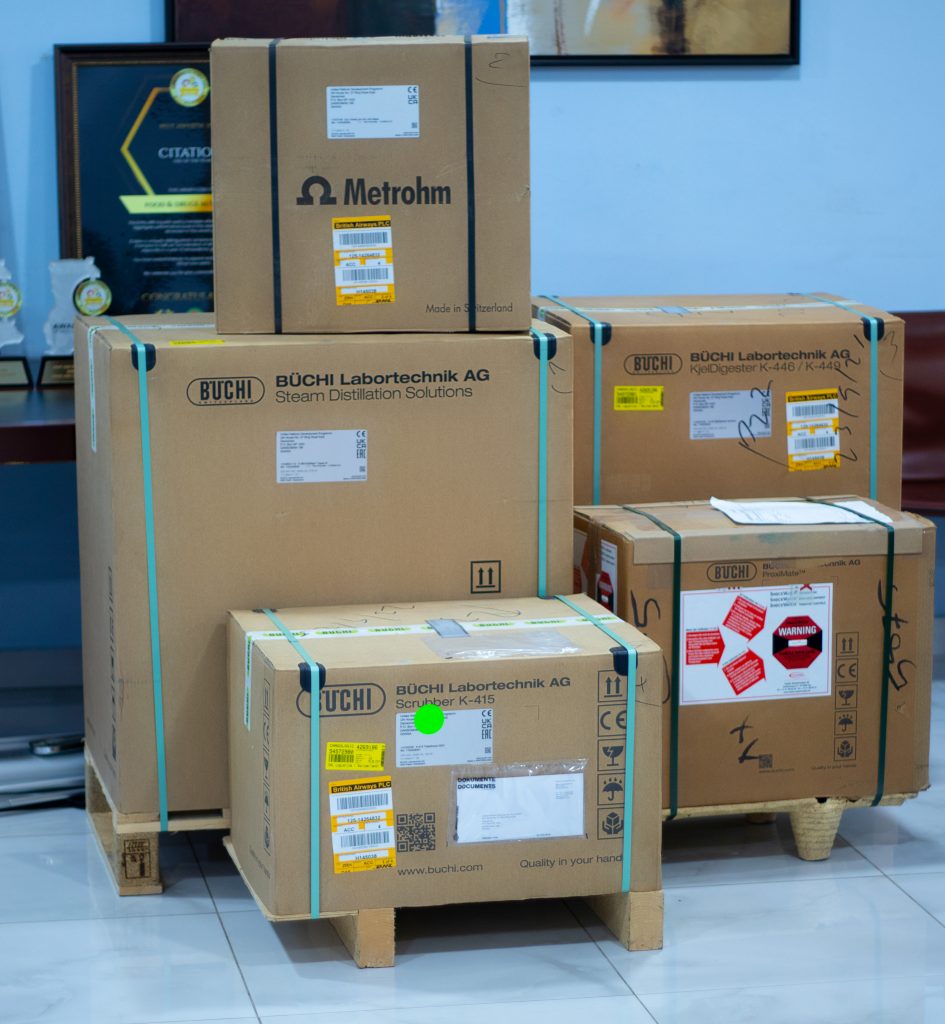
Protecting Public Health
At a brief ceremony in Accra, Mr. Ebenezer Kofi Essel, Director of Industrial Support Services at the FDA, who represented the CEO, expressed gratitude to UNIDO for the support. He noted that the equipment will enable the FDA to continue fulfilling its mandate of protecting public health through safe and quality food.
“Through these FDA will be able to continuous meet its mandate of protecting public health through safe and quality food, ensure compliance by rice value-chain actors including millers, processors, aggregators with product registration and facility licensing.” Mr. Essel stated.
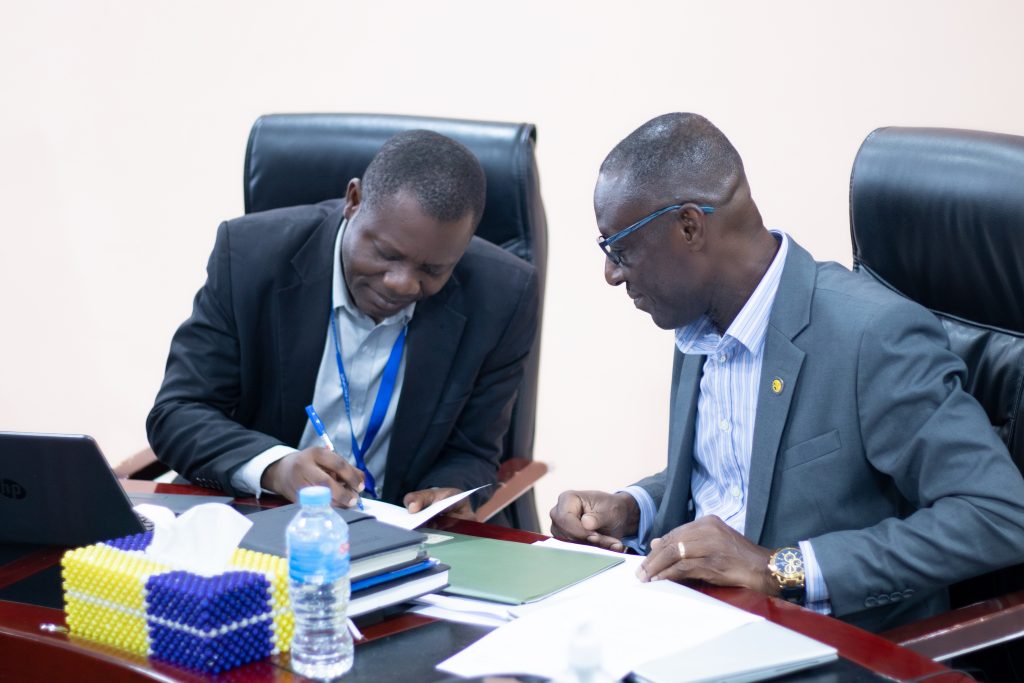
He added that through effective regulation, the competitiveness of rice produced locally, and other food products will be enhanced contributing to food safety and consumer confidence.
Empowering the FDA to Deliver
The donation, he said, is not only an investment in equipment but also in scientific excellence, data integrity, and evidence-based regulatory decision-making, empowering the FDA to deliver reliable analytical results that support effective policy implementation and regulation.
Mr. Essel assured that the equipment would be used effectively and maintained properly to strengthen quality monitoring, regulatory compliance, and consumer protection in the rice value chain and beyond.
UNIDO on Inclusive and Sustainable Industrial Development
For his part, Mr. David Darko, Director of Capacity Building at UNIDO, reiterated the organization’s mandate to promote and accelerate inclusive and sustainable industrial development in developing countries and economies in transition.
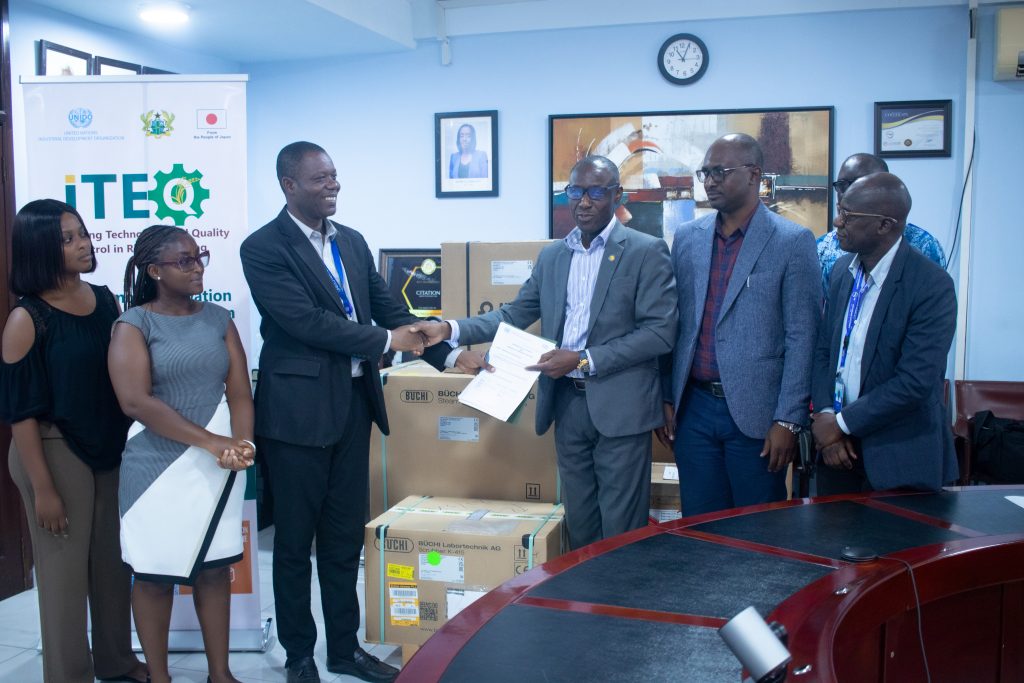
UNIDO’s Priority Areas
He outlined UNIDO’s priority areas, which include:
1. To reduce hunger by helping businesses from farm to fork.
2. To stop climate breakdown by using renewable energy and energy efficiency to reduce industrial greenhouse gas emissions
3. To support sustainable supply chains so that developing country producers get a fair deal and scarce resources are preserved.
Mr. Darko explained that the overall objective of the project is to contribute to sustainable and inclusive higher value creation and food supply capacity, in terms of both quality and quantity, in the Ghanaian agro-business industry through advancing the technological upgrade and sectoral competitiveness of the quality assurance system along the rice value chain focusing on the post-harvest processes and crop management.
Training from the Equipment Manufacturers
He also announced that the donation will be followed by training from the equipment manufacturers to ensure proper use and preventive maintenance, thereby extending the lifespan of the equipment.
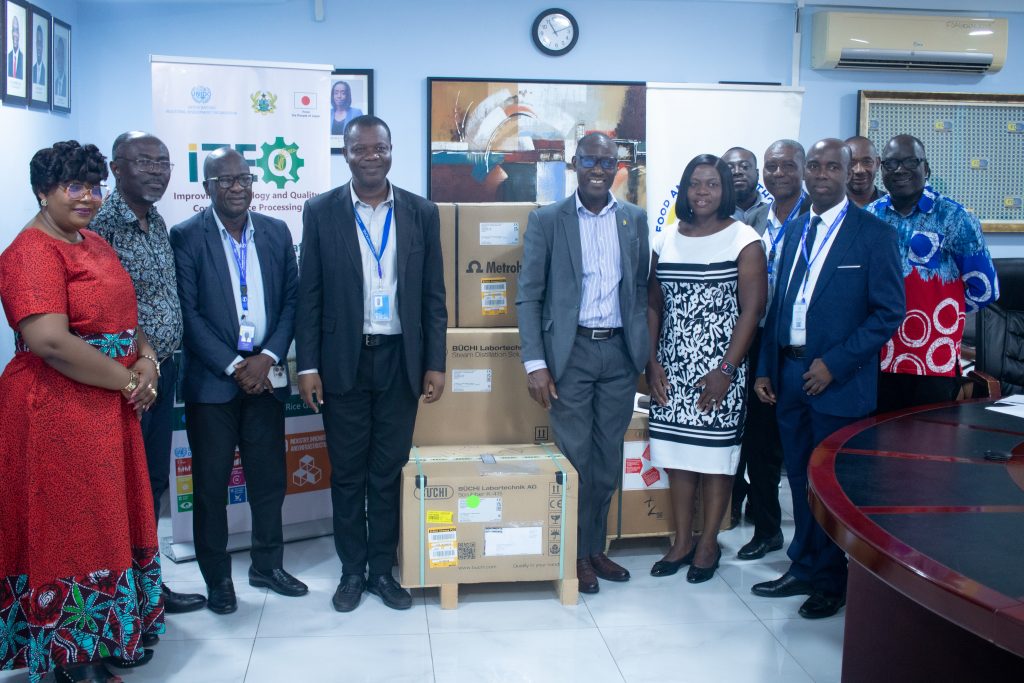
Funding the Project
Funded by the Government of Japan and implemented in collaboration with the Ministry of Food and Agriculture (MoFA), the initiative aims to strengthen Ghana’s rice value chain through improved technology, enhanced quality control, and greater competitiveness.
Implemented Regions in Ghana
The three (3) year project is being implemented in the Northern and Ashanti regions and will contribute to the food security challenges in the country and the overall national agenda towards achieving the Sustainable Development Goals.

